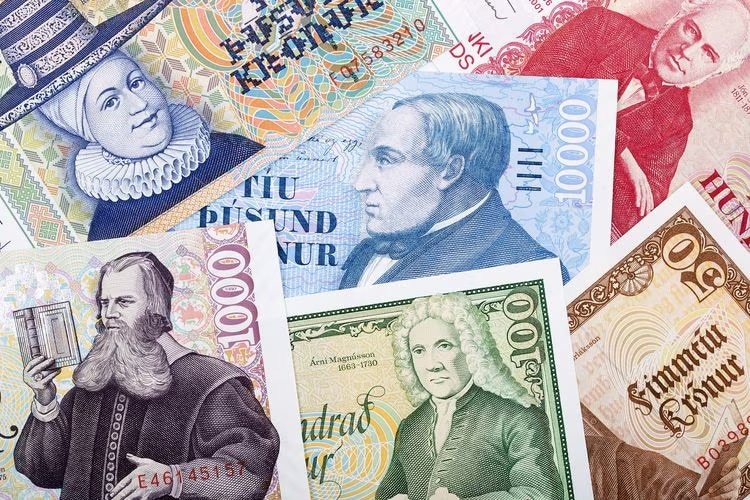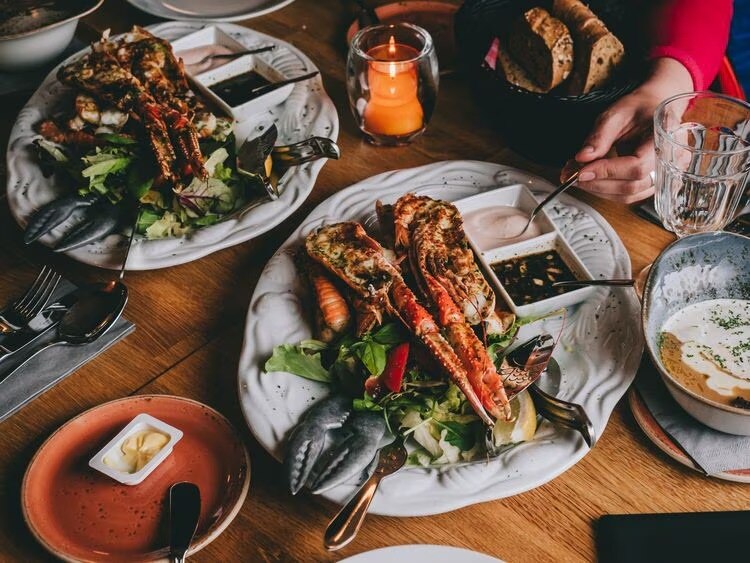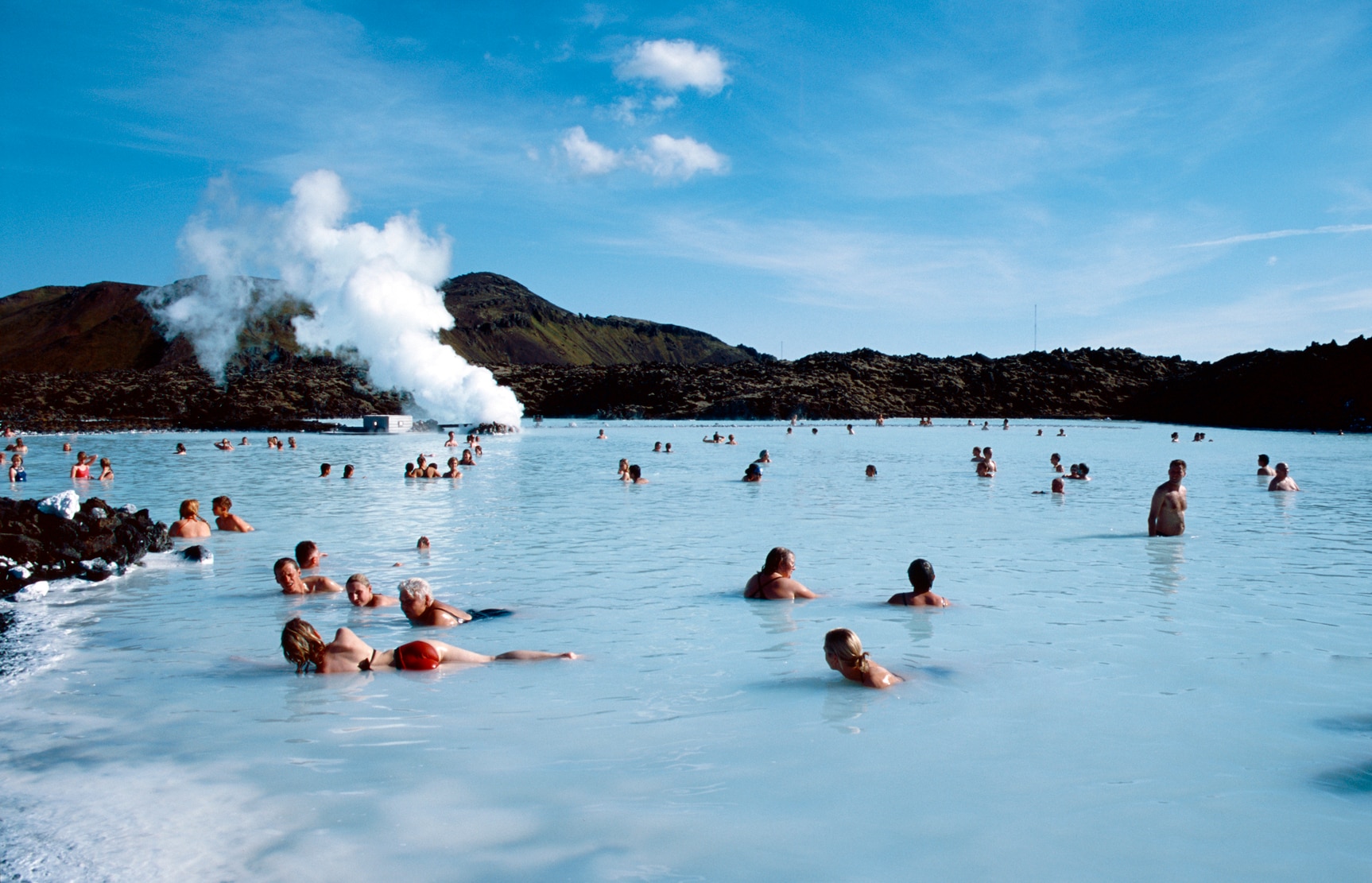-
2026/08/11
New York(EWR) -
2026/08/22
Reykjavik
(Updated: September, 13, 2025 12:12)
Iceland Travel Tips and Information
Official Name
Iceland
Capital
Reykjavik
Population
Country Code
Approximately 395,000 people
IS
Country Code (international calls)
+354
The flight time to Iceland is approximately 6 hours. Check the climate, currency, religion, manners, other information of Iceland below. Wishing you pleasant travels to Iceland.
Iceland is located southeast of Greenland and northwest of the Faroe Islands. The entire island is included in the aurora belt, so it is famous as a country where you can see the beautiful aurora. In addition, there are hot springs and geysers due to active volcanic activity.
Compare Airfares for Flights to Iceland
Compare Airfares for Flights to Iceland
Local Climate / Weather
Iceland has a subarctic climate with mild, cool summers and cold, snowy winters, making it a unique destination year-round. Summer (June to August) is the most popular time to visit, with temperatures ranging from 10-15°C, ideal for outdoor activities and experiencing the Midnight Sun. Winter (October to March) is known for the Northern Lights and snowy landscapes, though temperatures drop to around -1 to 3°C. For fewer crowds and moderate weather, consider visiting in spring (April-May) or fall (September), when the landscape is vibrant, and popular sites are quieter. When planning, note seasonal travel advice: summer brings warmer weather but also higher prices and busier tourist spots, so booking early is essential. Winter travel requires dressing warmly and planning around limited daylight, as well as potential road closures in more remote areas. Spring and fall offer more flexible travel options and lower rates, plus the chance to see Iceland’s nature in bloom or its autumnal colors. Throughout the year, major events and festivals highlight Iceland’s cultural richness. Iceland’s National Day (June 17) celebrates independence with parades and concerts, while the Reykjavik Arts Festival in May showcases the best of Icelandic art, music, and culture. In winter, the Winter Lights Festival (February) lights up Reykjavik with illuminated art displays, and the Iceland Airwaves music festival (November) brings top local and international acts. Whether for festivals, nature, or adventure, Iceland’s unique seasonal experiences have something for every traveler.
Currency & Tipping
Currency
Iceland uses the Icelandic Krona (ISK) as its official currency. The singular form is krona and the plural is kronur. There are five denominations of banknotes: 500, 1000, 2000, 5000, and 10000 kronur, and five denominations of coins: 1 krona, 5, 10, 50, and 100 kronur. While cash is accepted, Iceland is highly card-friendly. Credit and debit cards are widely used for nearly all transactions, from shopping to dining and even public transportation, making it convenient for tourists to pay without needing much cash on hand.
Tipping
As for tipping in Iceland, it is not mandatory. Service charges are typically included in restaurant bills, so additional tips are not expected, though rounding up the bill or leaving a small tip is appreciated if service is exceptional. Taxi fares do not usually require a tip, but it’s polite to round up to the nearest whole amount. For hotel staff, tipping is generally not required but welcomed for outstanding service. Understanding these norms allows travelers to navigate Iceland's tipping culture comfortably.
Useful Travel Information

Voltage & Electrical Outlets
For a comfortable trip to Iceland, knowing essential travel information like electricity, internet, and water quality is helpful. Iceland operates on 230V with Type C and F outlets (two round pins), so visitors may need a power adapter to charge their devices.

Internet Connectivity
The internet environment in Iceland is reliable and fast, with free Wi-Fi widely available in most hotels, cafes, and public spaces across urban and tourist areas. For travelers exploring remote areas, purchasing a local SIM card or portable Wi-Fi is a good option for uninterrupted connectivity.
Water for Consumption (Drinking Water)
Regarding drinking water, Iceland is known for its clean and fresh tap water, safe to drink anywhere in the country. Bottled water is available but often unnecessary as tap water is of high quality. With these tips, travelers can enjoy Iceland’s modern amenities while exploring its natural beauty.
Culture, Religion & Social Etiquette
Culture
Icelandic culture is rooted in strong family values, Viking heritage, and a love for nature, creating a welcoming atmosphere that travelers will appreciate. Religion in Iceland is primarily Lutheran, with the Evangelical Lutheran Church of Iceland as the national church, though Icelanders are generally open-minded about diverse beliefs. Icelanders value modesty, equality, and politeness, so manners like greeting with a friendly smile or nod and addressing people by their first name (a common Icelandic practice) are appreciated. Public behavior is typically reserved, and respecting nature by following local environmental guidelines is also important. Understanding these cultural norms helps travelers connect with locals and enjoy an enriching experience in Iceland.
Religion
The majority of Iceland's religion is Christian. Its origins can be traced back to 432 and is believed to have been introduced by St. Patricius. Most people in Iceland belong to the Catholic denomination.
Social Etiquette
There are no special manners in Iceland. In recent years, while Iceland has become a tourist city and has welcomed many visitors, the lack of infrastructure suitable for tourism has become a problem. Please be sure to observe good tourist manners, such as camping in prohibited areas and drinking alcohol.
Food Culture
Icelandic cuisine is unique and hearty, reflecting the island’s natural resources and heritage. Traditional Icelandic dishes include lamb, fresh seafood like Arctic char, and unique specialties like skyr (a creamy dairy product similar to yogurt) and hákarl (fermented shark), which offers a distinct flavor experience for adventurous eaters. Iceland also has popular street food like pylsur, a type of hot dog made with lamb, pork, and beef, commonly found at hot dog stands like Bæjarins Beztu Pylsur in Reykjavik. For those looking to sample authentic Icelandic meals, local restaurants such as Fish Market and Grillmarkaðurinn are highly recommended for their fresh, locally-sourced ingredients and innovative dishes. With an emphasis on high-quality ingredients, Icelandic food culture provides travelers a unique taste of Nordic tradition and culinary creativity.
Major Tourist Attractions & UNESCO World Heritage Sites
Major Tourist Attractions
Iceland is renowned for its natural beauty, and most of its attractions center around nature sightseeing. The Blue Lagoon, a popular hot spring, is a must-visit destination. Its outdoor geothermal pool maintains a temperature of about 37–39 degrees Celsius and is believed to have therapeutic effects on skin conditions. The facility also includes saunas and is unsegregated by gender. In the Golden Circle area, you can find Geysir, a geothermal hot spring that shoots columns of water up to 30 meters high, although volcanic activity can sometimes interrupt this spectacle. Nearby is "Gullfoss," also known as the Golden Falls, a stunning waterfall with a width of about 70 meters and a two-tiered drop, the first measuring 15 meters and the second 30 meters. Another notable site is the Kerid Crater Lake, a volcanic crater lake with a circumference of 270 meters and a depth of 55 meters, formed approximately 6,500 years ago during the Cretaceous period. Additionally, the Jokulsarlon Glacier Lagoon, filled with floating icebergs, is a breathtaking attraction. While entry to the area is free, a highly recommended activity is the paid amphibious boat tour on the lagoon.
UNESCO World Heritage Sites
Iceland has two World Heritage Sites. The cultural World Heritage Site is Thingvellir National Park, which forms part of the Golden Circle alongside Geysir and Gullfoss. The name "Thingvellir" translates to "Parliament Plains," as this area, surrounded by rocks, was historically used for assemblies due to its excellent acoustics. This park also contains "rift valleys" known locally as "Gjau," and it features the largest of these fissures. The natural World Heritage Site is Surtsey, an uninhabited island that emerged from the sea due to volcanic eruptions. The island was formed solely by volcanic activity over three years of continuous eruptions. Like Japan's Nishinoshima, Surtsey is protected for its unique ecosystem, and landing is prohibited, although it can be observed from the air. Another highlight is Silfra, a world-famous diving spot renowned for its incredibly clear water, offering a unique underwater experience.
Travel FAQs
What is the safety situation in Iceland like? What should I be careful of?
Iceland is one of the safest countries in the world, with low crime rates and a very welcoming environment for tourists, including. Violent crime is rare, and petty crime like pickpocketing is almost nonexistent, even in popular tourist spots. But it is still advised to please be careful when visiting.
What is the most popular airport to fly into Iceland?
Keflavik International Airport near the capital, Reykjavik, is popular. It connects Europe and America by air.
What are the major cities in Iceland?
Iceland does not have many major cities, but the largest city is the capital, Reykjavik, and the popular tourist destination, Akureyri.
Is English spoken in Iceland?
The official language of Iceland is Icelandic, but most people can also speak English.
What is the best season to visit Iceland?
Iceland has a very low temperature. We recommend visiting in the relatively comfortable summer months.




